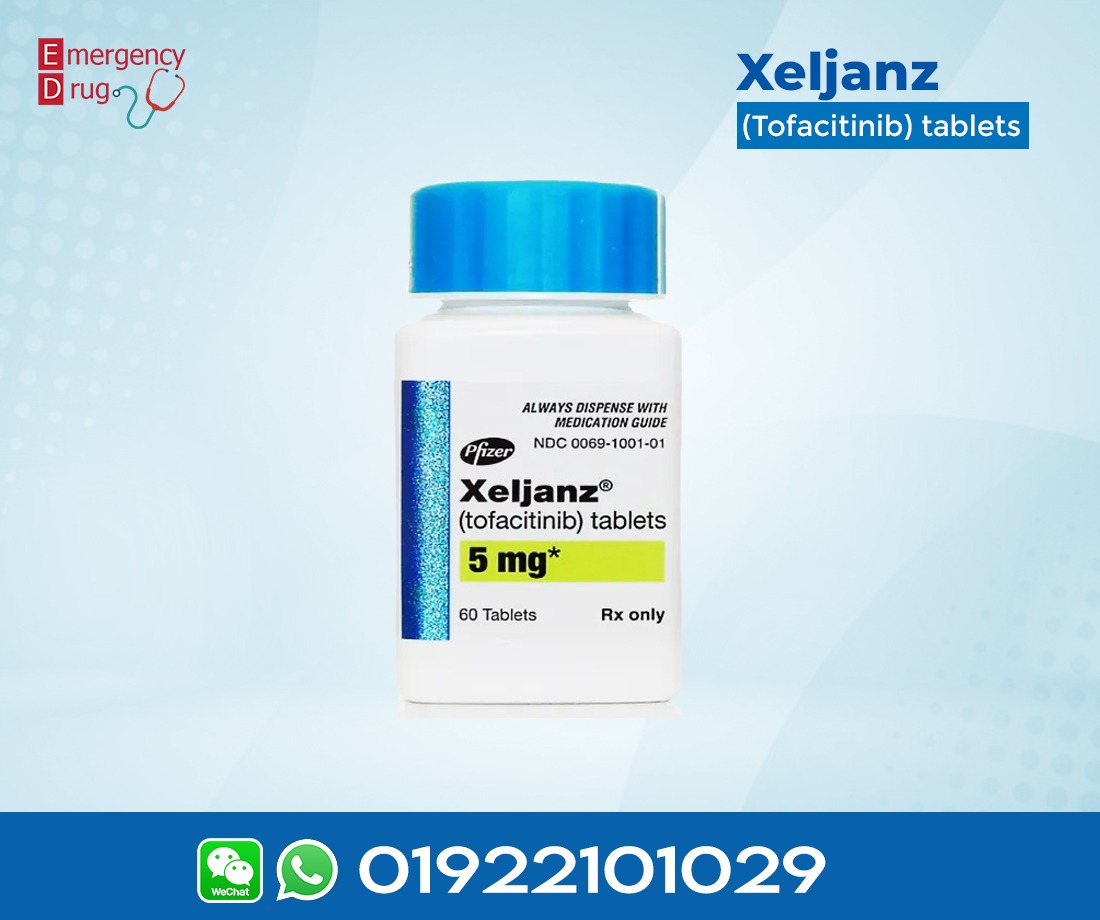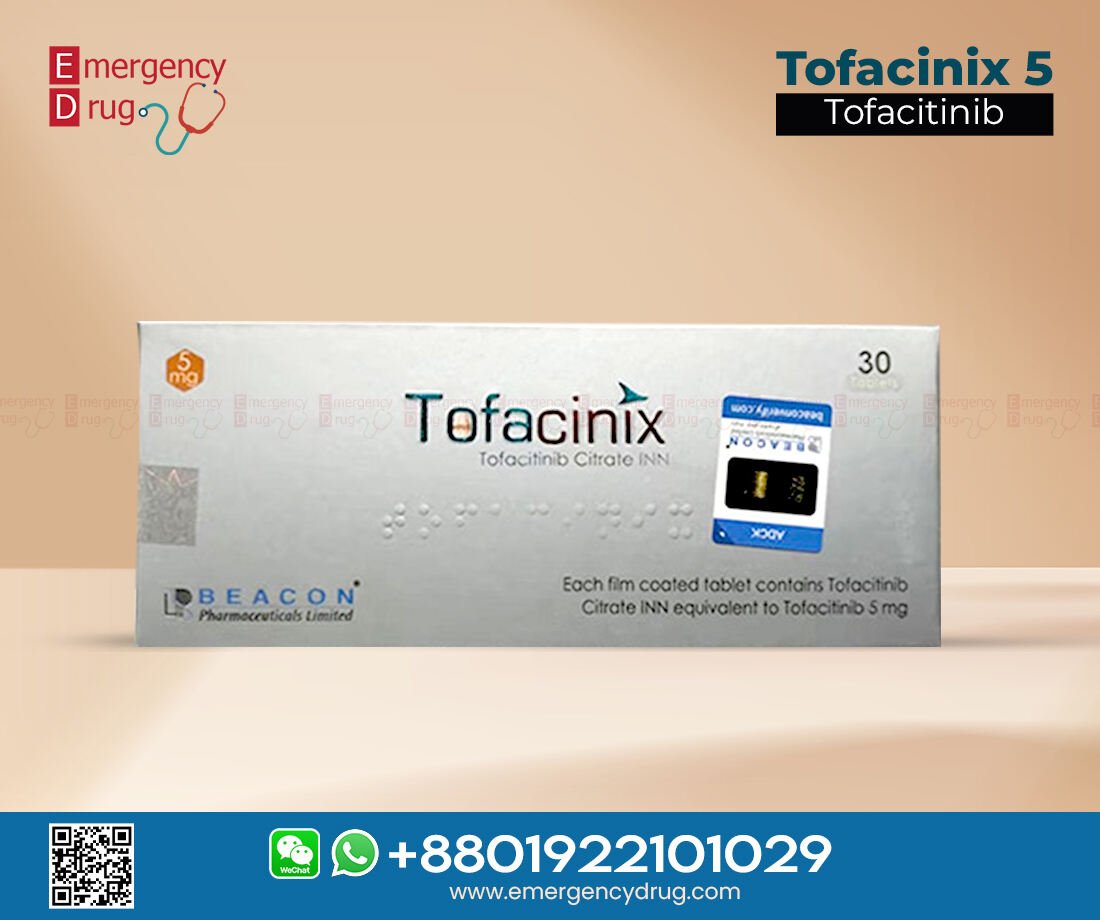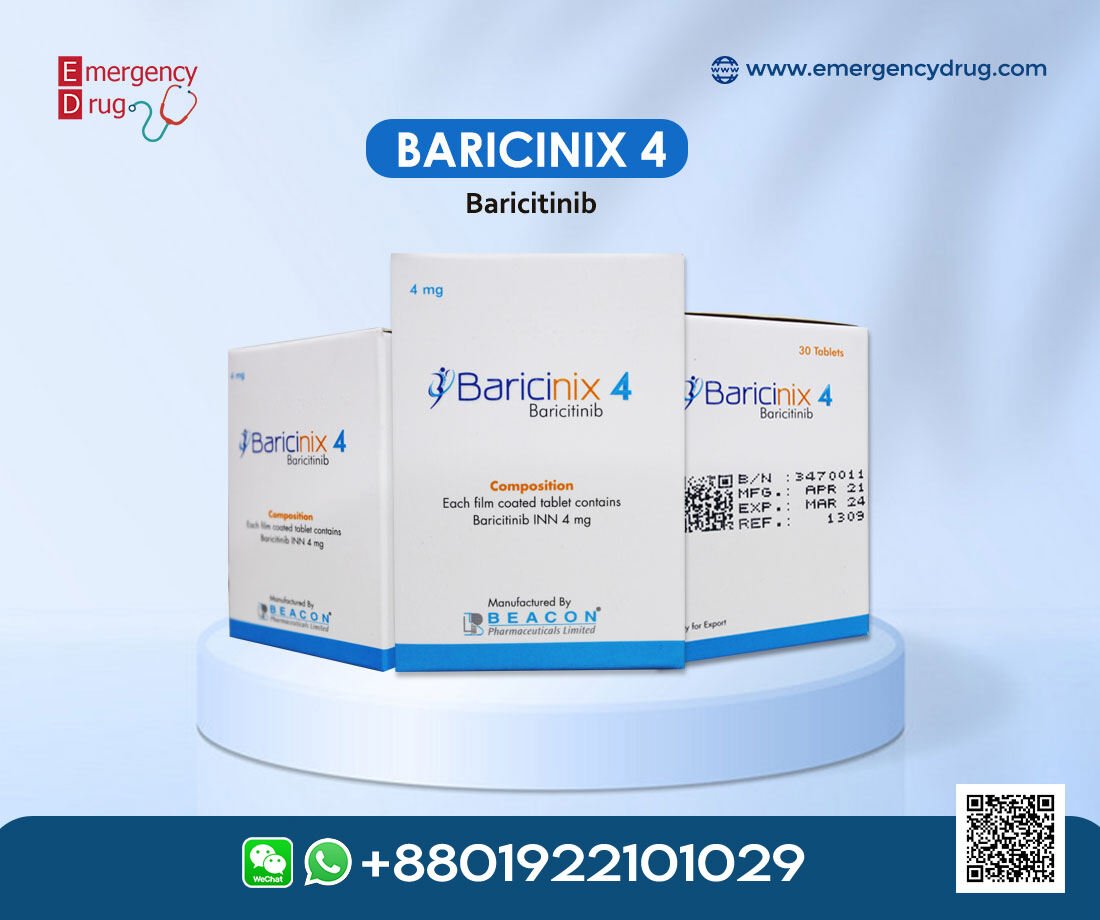Description
Product Features:
| Product Name | : Upanib |
| Generic Name | : Upadacitinib |
| Manufacturer | : Ziska Pharma Ltd. |
| Indication | : Rheumatoid arthritis |
| Formulation | : Tablet |
| Strength | : 15 mg |
| Quantity | : 30 Tablets |
| Storage | : Room temperature |
| Registrations | : Export Only |
Indications and Uses of Upanib 15 Mg
Upanib 15 Mg is a type of medicine that is made with Upadacitinib as the active ingredient. Upanib is a Janus kinase (JAK) inhibitor sodium salt,and it is used to treat adults with moderate to severely active rheumatoid arthritis who have an inadequate response or intolerance to methotrexate. It is an arthritis medication prescribed for certain inflammatory conditions. Here we give you a step-by-step guide about Upanib 15 Mg, including its use, mechanism of action, dosage, side effects and precautions.
Therapeutic Indications
Upanib 15 Mg is mainly used for the treatment of:
Rheumatoid Arthritis: A chronic auto-immune disorder that affects the joints.
Psoriatic Arthritis: A form of arthritis that affects people who have psoriasis, a skin condition.
Ankylosing Spondylitis: This is a type of arthritis focused on the spine.
Atopic Dermatitis: A chronic skin condition that causes dry, itchy skin and rashes.
Ulcerative Colitis: A protracted inflammation of the digestive tract, especially the lining of the large intestine.
Clinical Pharmacology of Upanib 15 Mg
Drug Classes:
Upanib is a member of a class of drugs called Janus kinase (JAK) inhibitors.
Mechanism of Action:
Methods We present the results of a phase 3 trial evaluating the efficacy and safety of the oral Janus kinase (JAK) inhibitor upadacitinib. JAKs are cytosolic enzymes that transduce signals from cytokine or growth factor- receptor interactions at the cell membrane to affect the cellular processes of hematopoiesis and immune cell function. Signal is phosphorylated and activated by JAKs in the signaling pathway. Signal Transducers and Activators of Transcription (STATs) that regulate intracellular activity such as gene transcription. Upadacitinib is a selective JAK inhibitor with both a unique mechanism of action and timing of inhibition, targeting JAKs directly to inhibit the downstream phosphorylation and activation of STATs.
Dosage & Administration
The way Upadacitinib is taken depends on the condition it being used to treat and individual patient characteristics. Follow your doctor’s instructions and only take the prescribed dosage. Availability of Upanib 15 Mg: Upanib 15 Mg are available in tablets form and the intended dose of Upanib 15 Mg is once a day, with or without food. Upadacitinib can be administered alone or in combination with methotrexate or other non-biologic DMARDs. Do not start or stop Upadacitinib if the absolute lymphocyte count is less than 500 cells/mm3 or absolute neutrophil count is less than 1000 cells/mm3 or hemoglobin is less than 8 g/dL.
Contraindications
None
Child Dose:
The safety and effectiveness of Upadacitinib in children and adolescents aged 0 to 18 years have been taken into account and has not yet established. No data is available.
Miss a dose:
If you miss a dose of Upanib 15 Mg, take it as soon as you remember. However, if it is almost time for your next dose, skip the missed dose and continue with your formal dosing schedule. Do not take a double dose to make up for a missed one.
Overdosage
In clinical trials, upanib was dosed up to equivalent clinical daily AUC doses to 60 mg extended-release once daily. Adverse events were similar to those observed at lower doses and no dose-specific toxicities were identified. In the systemic circulation, after up to 24 h post-dose (within the dose range investigated in clinical study), about 90% of Upanib is excreted. Overdose: Symptoms should be observed in case of an overdose. Those who experience bad reactions should be treated accordingly.
Side Effects of Upanib 15 Mg
Common side effects:
- Upper respiratory tract infections
- Nausea
- Cough
- Elevated liver enzymes
Serious side effects:
- Serious infections
- Blood clots
- Malignancies
- Tears in the stomach or intestines
Use In Specific Populations
Pregnancy:
Limited human data are not sufficient to determine drug-associated risk of major birth defects or miscarriage with use of Upanib 15 Mg in pregnant women. Animal studies have shown that upadacitinib may harm a developing fetus. Seek advice from your doctor.
Lactation:
It is unknown whether Upadacitinib passes into breast milk. So Advise not to breastfeed. Consult your doctor before breastfeeding while taking this medication.
Hepatic Impairment:
Upadacitinib is not recommended in patients with severe hepatic impairment.
Precautions & Warnings
Serious Infection: Use of Upanib should be avoided in patients with active serious infection, including localized infections.
Malignancy: Weigh the risks and benefits of Upanib treatment before starting therapy in patients with known malignancy.
Thrombosis: Weigh the risks and benefits before treating patients who may be at risk for increased thrombosis. Immediately assess patients with signs of thrombosis and provide appropriate treatment.
Gastrointestinal Perforations: Use cautiously in patients who may be at greater risk.
Laboratory Monitoring: Recommended given possible changes in lymphocytes, neutrophils, hemoglobin, liver enzymes and lipids
Embryo-Fetal Toxicity: Upanib has the potential to cause fetal harm based on animal studies. Inform women of childbearing potential of the potential risk to a fetus and to use effective contraception.
Vaccinations: Use caution when administering live vaccines with Upanib.
Adverse Reactions
Adverse reactions (greater than or equal to 1%) are upper respiratory tract infections, nausea, cough, and pyrexia.
For a complete list of potential adverse reactions, refer to the medication’s official prescribing information.
Interaction
Upanib exposure increases when taken with strong CYP3A4 inhibitors (like as ketoconazole), requiring caution in patients on long-term treatment with these drugs. Conversely, strong CYP3A4 inducers (like as rifampin) decrease Upanib exposure, potentially reducing its effectiveness. Therefore, coadministration with strong CYP3A4 inducers is not recommended.
Storage Conditions
Store in a cool & dry place below 30° C & protect from sunlight. Keep out of reach of children.
Manufactured by
Upanib 15 Mg is manufactured by Ziska Pharmaceuticals Limited.
Disclaimer: This information is provided solely for educational reasons and should not be considered medical advice. Always consult with your doctor or healthcare professional before taking any drug.








Reviews
There are no reviews yet.